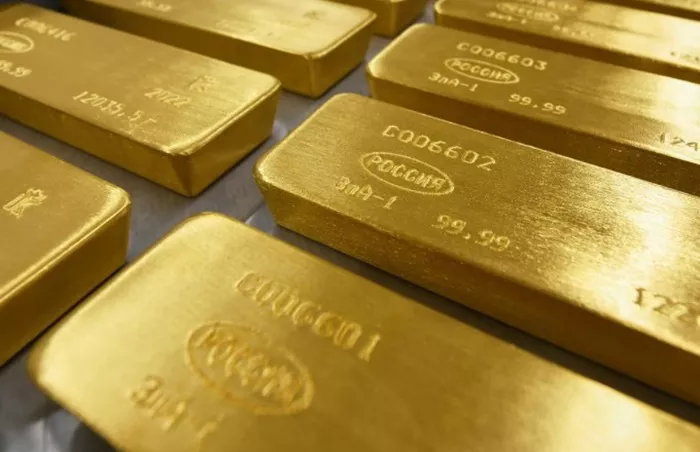Gold has been a valuable asset for centuries. Its allure comes from its rarity, beauty, and intrinsic value. Many investors consider gold a safe haven during economic uncertainty. As a result, understanding how gold is valued is essential for anyone interested in investing in this precious metal. One common question is, “How much is 1,000 pounds of gold worth?” This article will explore the current value of gold, the factors affecting its price, and how to calculate the worth of 1,000 pounds of gold. By the end, you will have a comprehensive understanding of the value of this precious metal.
Understanding Gold Prices
The Current Price of Gold
The price of gold fluctuates regularly based on supply and demand, market conditions, and geopolitical factors. Gold prices are usually quoted per ounce. As of the current market conditions, gold has been trading around $1,900 to $2,000 per ounce. However, these prices can vary daily, so it’s important to check the latest market data.
Converting Pounds to Ounces
To determine how much 1,000 pounds of gold is worth, we first need to convert pounds into ounces. One pound equals 16 ounces. Therefore:
- 1,000 lbs×16 oz/lb=16,000 ounces
This means that 1,000 pounds of gold equals 16,000 ounces.
Calculating the Worth of 1,000 Pounds of Gold
Using Current Gold Prices
To find out how much 1,000 pounds of gold is worth, you multiply the total number of ounces by the current price per ounce. For example, if the price of gold is $1,900 per ounce, the calculation would be:
- 16,000 oz×1,900 USD/oz=30,400,000 USD
Thus, at $1,900 per ounce, 1,000 pounds of gold would be worth approximately $30.4 million.
Price Variation Impact
If the price of gold rises to $2,000 per ounce, the value would be:
- 16,000 oz×2,000 USD/oz=32,000,000 USD
This means that at $2,000 per ounce, 1,000 pounds of gold would be worth about $32 million. Therefore, the value of 1,000 pounds of gold can range significantly depending on the market price.
See also: How Much Is 10 Pounds of Gold Worth?
Factors Affecting the Price of Gold
1. Supply and Demand
The fundamental principle of economics states that prices are influenced by supply and demand. When demand for gold increases, prices tend to rise. Conversely, if the supply of gold increases or demand decreases, prices can fall. Factors influencing demand include jewelry manufacturing, investment demand, and central bank purchases.
2. Geopolitical Factors
Geopolitical instability often drives investors toward gold as a safe-haven asset. During times of political turmoil, economic crises, or global uncertainty, gold prices typically increase. Conversely, stability can lead to decreased demand and lower prices.
3. Inflation
Gold is often seen as a hedge against inflation. When inflation rates rise, the value of currency decreases, leading investors to seek gold to preserve wealth. Increased demand in inflationary periods can push gold prices higher.
4. Interest Rates
Interest rates also impact gold prices. When interest rates are low, gold becomes more attractive because it does not yield interest. Conversely, when rates rise, investors may prefer interest-bearing assets, leading to lower demand for gold.
5. Currency Strength
The strength of the U.S. dollar can significantly affect gold prices. Gold is typically priced in dollars, so a weaker dollar makes gold cheaper for foreign investors, increasing demand. Conversely, a strong dollar can lead to lower gold prices.
Historical Context of Gold Prices
Long-Term Trends
Gold prices have experienced significant fluctuations over the decades. In the early 2000s, gold was priced around $300 per ounce. As global economic uncertainty grew, prices surged, reaching over $1,900 per ounce in 2011. Since then, gold prices have seen ups and downs, but the overall trend has been upward, particularly during times of economic crisis.
Recent Developments
In recent years, gold prices have been influenced by various factors, including the COVID-19 pandemic, inflation concerns, and geopolitical tensions. In 2020, gold reached an all-time high of over $2,000 per ounce due to the economic fallout from the pandemic and the subsequent government stimulus measures.
See also: How Much Is 100 Oz of Gold Worth?
Investing in Gold
Methods of Investment
Investing in gold can be done in various ways, each with its pros and cons:
Physical Gold: This includes gold bars, coins, and jewelry. While owning physical gold allows for tangible assets, storage and security can be concerns.
Gold ETFs: Exchange-Traded Funds that track the price of gold. These provide an easy way to invest without the need to store physical gold.
Mining Stocks: Investing in companies that mine gold can provide exposure to gold prices while potentially offering dividends.
Gold Futures and Options: These financial instruments allow investors to speculate on future gold prices. They carry higher risks but can offer significant rewards.
Risks of Gold Investment
While gold is often seen as a safe investment, it carries risks. Prices can be volatile, and market trends can change. Additionally, physical gold has storage costs and risks of theft. Investors should consider their risk tolerance and investment goals before investing in gold.
Conclusion
Determining the worth of 1,000 pounds of gold requires understanding gold prices and how to calculate its value. At current market prices, 1,000 pounds of gold can be worth between $30 million and $32 million, depending on fluctuations in the gold market. Factors such as supply and demand, geopolitical events, inflation, interest rates, and currency strength all play a role in determining gold prices. Gold remains a popular investment choice due to its historical significance, perceived stability, and ability to hedge against inflation and economic uncertainty. Understanding how to value gold and the factors influencing its price can help investors make informed decisions. Whether you’re a seasoned investor or a newcomer to the market, knowledge of gold’s worth and its role in the financial landscape is invaluable.
Related Topics:

